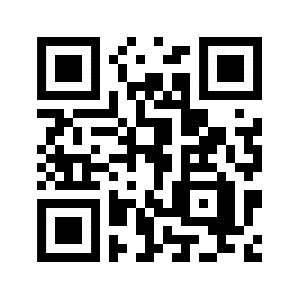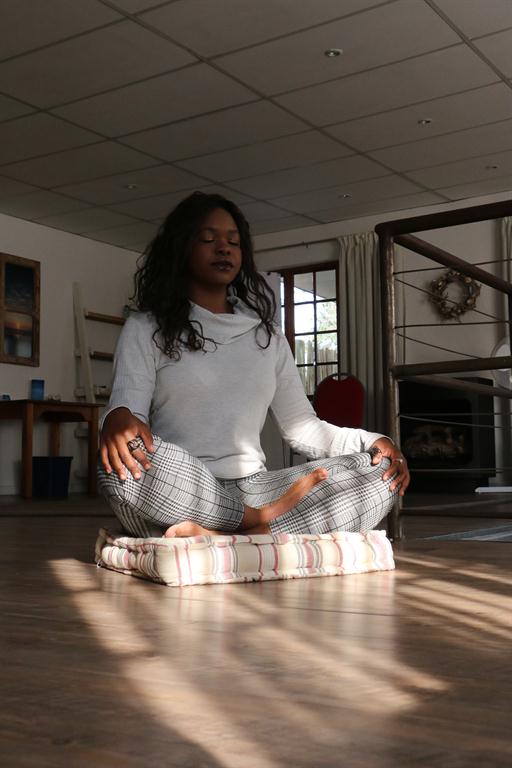Change your mind. Change your life. Change the world.
Meditation is one of the single most important skills you can learn in today’s crazy, stimulant-saturated world.
Henriette Lamprecht – Betrayed by someone she loved and after years of being unable to let it go, Melissa Mukaiwa turned to Google for advice. Every article she read about forgiveness suggested meditation. Being raised in a Christian home, she was hesitant, but also desperate.
“I did my research and soon learned that many of my preconceived notions were confused and in other cases just wrong,” says Melissa.
She spent many months practicing by herself with limited success. Melissa then spent time in a temple in Thailand where they would meditate for up to 15 hours a day, and where she came to understand that meditation is one of the single most important skills you can learn in today’s crazy, stimulant-saturated world.
“Upon leaving the temple other tourists would see me practicing and ask me to teach them. When I came home, it was much of the same so I got my certification, started teaching shortly thereafter and have been doing so for the past 6 years!”
Rather than asking where meditation originated from, is to rather ask why it’s still around today, says Melissa. “The answer of course, is that it has been and still remains one of the most powerful practices for positively transforming all aspects of our lives.”
She explains meditation as a tool used to train the mind “so that we can free ourselves from unnecesary suffering”.
“Nowadays our suffering comes in so many different hues and forms, but if we inquire honestly, we realise that all of both the positive and negative things that we see in our lives (and in the world in general), started as an idea in the mind.
Change your mind. Change your life. Change the world.”
It’s important to understand that meditation is not a ‘one size fits all’, explains Melissa.
“There are hundreds if not thousands of both ancient and more modern types of meditation.
What may work wonderfully for one person, may be totally useless and uninspiring for another.”
Generally speaking one can see meditation as both a gym and a reboot for your brain, says Melissa.
“At the beginning it may be a little difficult but after a while you’ll realise how much of a sub-optimal level you’ve been living on.
In Namibia, a popular concern is that practicing meditation goes against their cultural or religious beliefs, says Melissa.
“Saying that meditation is bad, is like saying one should never practice any type of exercise because there have been controversial case studies about Crossfit. It just doesn’t make sense.”
Because meditation forces you to really look at yourself, people also tend to shy away from the practice.
“This can be a lot for some people, especially if they are by nature very self-critical.”
To conquer these fears one can start by researching the science of meditation, speaking to a meditation teacher to find out if one or more particular types of meditation may work for you and trying out some practices.
Beyond that, Melissa emphasizes that the practice will become “one of the most profoundly rewarding, self-loving and blissful things that you can do!”
Facebook: Mel on Meditation; http://melissamukaiwa.com; [email protected]
BLOKKIE:
Roughly 200 - 400 million people globally meditate. Different groups of people meditate in different ways. Some recite mantras, some use mala beads, some chant, and some prefer walking meditation.
“I did my research and soon learned that many of my preconceived notions were confused and in other cases just wrong,” says Melissa.
She spent many months practicing by herself with limited success. Melissa then spent time in a temple in Thailand where they would meditate for up to 15 hours a day, and where she came to understand that meditation is one of the single most important skills you can learn in today’s crazy, stimulant-saturated world.
“Upon leaving the temple other tourists would see me practicing and ask me to teach them. When I came home, it was much of the same so I got my certification, started teaching shortly thereafter and have been doing so for the past 6 years!”
Rather than asking where meditation originated from, is to rather ask why it’s still around today, says Melissa. “The answer of course, is that it has been and still remains one of the most powerful practices for positively transforming all aspects of our lives.”
She explains meditation as a tool used to train the mind “so that we can free ourselves from unnecesary suffering”.
“Nowadays our suffering comes in so many different hues and forms, but if we inquire honestly, we realise that all of both the positive and negative things that we see in our lives (and in the world in general), started as an idea in the mind.
Change your mind. Change your life. Change the world.”
It’s important to understand that meditation is not a ‘one size fits all’, explains Melissa.
“There are hundreds if not thousands of both ancient and more modern types of meditation.
What may work wonderfully for one person, may be totally useless and uninspiring for another.”
Generally speaking one can see meditation as both a gym and a reboot for your brain, says Melissa.
“At the beginning it may be a little difficult but after a while you’ll realise how much of a sub-optimal level you’ve been living on.
In Namibia, a popular concern is that practicing meditation goes against their cultural or religious beliefs, says Melissa.
“Saying that meditation is bad, is like saying one should never practice any type of exercise because there have been controversial case studies about Crossfit. It just doesn’t make sense.”
Because meditation forces you to really look at yourself, people also tend to shy away from the practice.
“This can be a lot for some people, especially if they are by nature very self-critical.”
To conquer these fears one can start by researching the science of meditation, speaking to a meditation teacher to find out if one or more particular types of meditation may work for you and trying out some practices.
Beyond that, Melissa emphasizes that the practice will become “one of the most profoundly rewarding, self-loving and blissful things that you can do!”
Facebook: Mel on Meditation; http://melissamukaiwa.com; [email protected]
BLOKKIE:
Roughly 200 - 400 million people globally meditate. Different groups of people meditate in different ways. Some recite mantras, some use mala beads, some chant, and some prefer walking meditation.








Comments
Namibian Sun
No comments have been left on this article